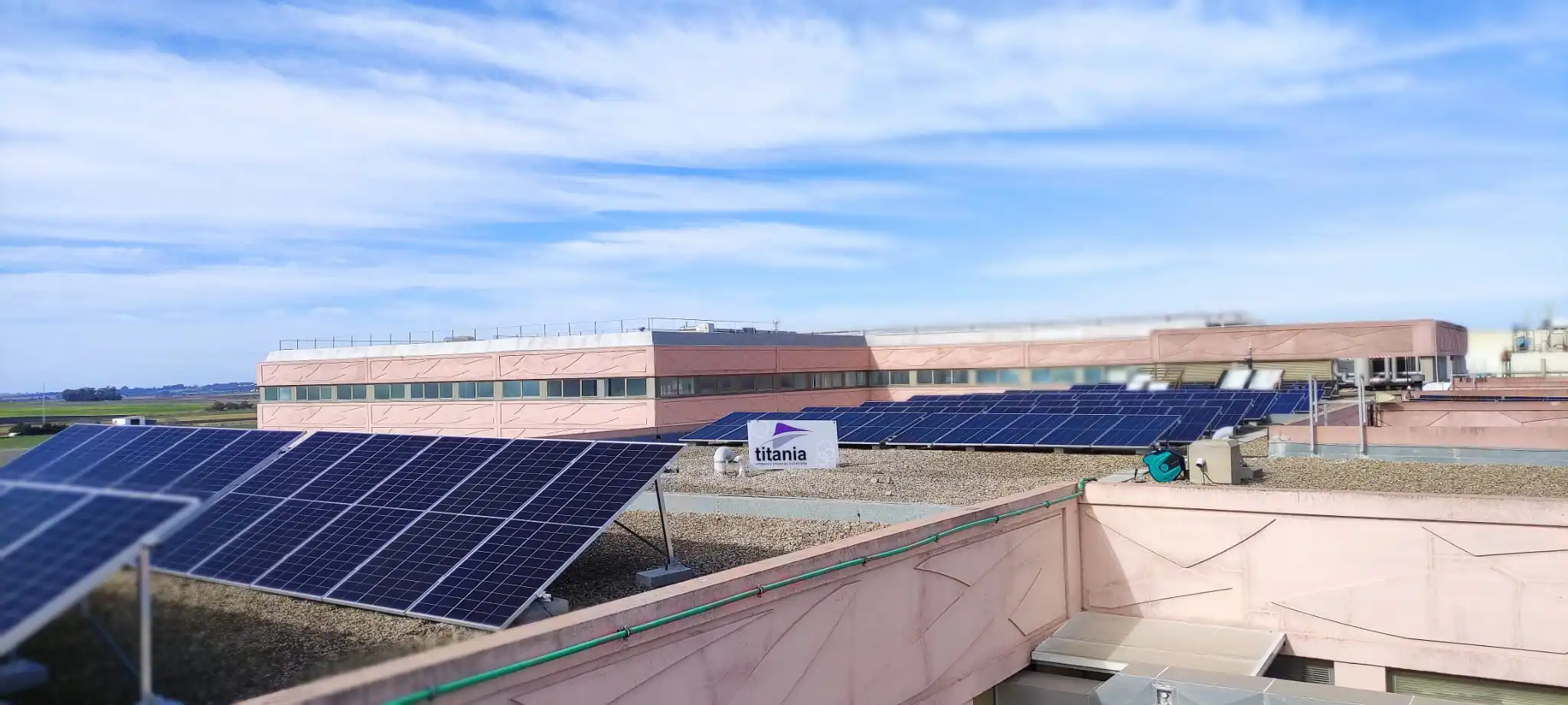Titania has just installed a 75-kW peak power photovoltaic plant to supply its laboratories.
One of the advantages of renewable energy as an alternative power supply, is that it is relatively easy for citizens and businesses to access, and this is particularly true of photovoltaic energy.

However, space is required for the placement of solar panels and their use is limited to daylight hours and relatively clear weather. For this reason, solar energy is particularly suitable for industry, where consumption is concentrated during the daytime, as opposed to the usual domestic needs, where consumption is concentrated outside work and school hours, i.e., during the afternoon and evening. In this sense, one of the challenges facing the renewables sector – and which is already in the process of being resolved – is the storage of the energy produced to increase its availability.
In terms of the advantages photovoltaic energy offers, it should be noted that no greenhouse gases are emitted during the installation’s operating period, which can exceed 20 years. All the energy that is generated and used from renewable sources has a positive impact by reducing the use of traditional energies that generate, directly or indirectly, this type of gas. We mustn’t forget that greenhouse gases are responsible for the increase in the average temperatures the planet is suffering which are associated with the accelerating climate change we are currently experiencing.
It is the commitment to these environmental benefits that underpin Titania’s project to install a 75-kW photovoltaic park, capable of covering up to 100% of the usual energy demand required by our facilities.
The analysis of the consumption generated by our activity and of the climatic conditions enjoyed by the province of Cadiz lead us to estimate that the plant installed will reduce the energy consumption of the company’s laboratories by up to 30%, which will have a significant impact on the reduction of the company’s carbon footprint.

This also translates into savings in energy costs, a benefit that has currently acquired particular importance due to the several energy and geopolitical crises that are impacting energy supply. Under these conditions, the payback period for the investment is shorter than conventionally estimated.
After depreciation is factored in, an asset will remain which, in addition to contributing to the decarbonisation of the planet and reducing energy costs in the profit and loss account, will also provide protection against various contingencies, such as an even greater increase in traditional energy costs or even a shortage in one of these energy sources.
Lastly, European assistance has been requested, charged to the NextGenerationEU fund, within the framework of the Recovery, Transformation and Resilience Plan, for the installation of the photovoltaic plant within the incentive program linked to self-consumption and storage, with renewable energy sources, as well as the implementation of renewable thermal systems in the residential sector of the Ministry for Ecological Transition and the Demographic Challenge, managed by the of Andalusian REgional Government, through the Andalusian Energy Agency.


